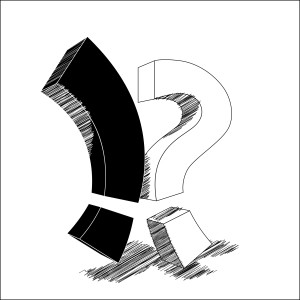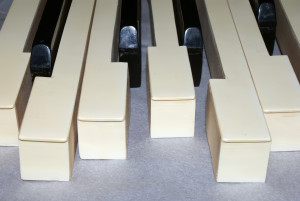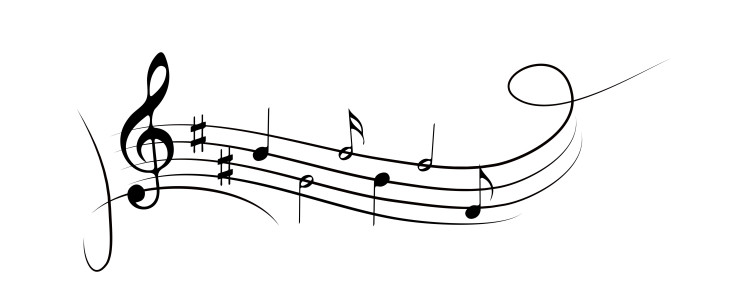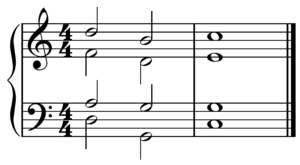 Years ago, I had a dream where wounded and dying people covered the landscape as far as the eye could see. A great battle had taken place. I stood in their midst and felt despair. Shaking my fist, an angry primal groan rose up in my spirit against the enemy. I wanted to scream, “Leeavve themmm alonne!” but could not form any words. My groaning startled my husband out of his sleep.
Years ago, I had a dream where wounded and dying people covered the landscape as far as the eye could see. A great battle had taken place. I stood in their midst and felt despair. Shaking my fist, an angry primal groan rose up in my spirit against the enemy. I wanted to scream, “Leeavve themmm alonne!” but could not form any words. My groaning startled my husband out of his sleep.
Even when I’m awake, my prayers for broken and wounded people often amount to the equivalent—deep wordless groans. I believe God understands.
 “For we know that the whole creation groans and suffers the pains of childbirth together…In the same way the Spirit also helps our weakness; for we do not know how to pray as we should, but the Spirit Himself intercedes for us with groanings too deep for words.” –Romans 8:22,26
“For we know that the whole creation groans and suffers the pains of childbirth together…In the same way the Spirit also helps our weakness; for we do not know how to pray as we should, but the Spirit Himself intercedes for us with groanings too deep for words.” –Romans 8:22,26
So one morning, I asked God for His perspective on the brokenness of the world. As I quieted my thoughts and waited, the word CADENCE came to mind.
Hmm. Something to do with rhythm? I wondered. What could it mean?
One definition of cadence is a harmonic progression of at least two chords that concludes a piece of music, creating a sense of resolution. The “Ahh-menn” chords at the end of a hymn are an example. Cadences can be “weak” or “strong” depending on its sense of finality and closure. I thought of the “Hallelujah” chorus in Handel’s Messiah.
Then a second word popped into my thoughts: DISSONANCE. Another music term, as it were. Dissonance is a lack of harmony among musical notes—a harsh clashing sound that creates tension. For example, playing two adjacent piano keys together.
As I read more, I learned that CONSONANCE has to do with the harmony of sound or the opposite of dissonance.
Though much of music theory is vastly beyond my understanding, like most people I’ve experienced dissonance, consonance, and cadence in listening to music. So with these words in mind, I pondered what God might be saying through the metaphor of music.
Music is inherent in creation.
 String theorists maintain, “Every form of matter or energy is the result of the vibration of strings.” Vibration forms sound. Some sounds are beautifully consonant. Ocean waves have a rhythmic sound. Bees hum the harmonious work of community. Whales click, whistle, and pulsate moaning songs to each other.
String theorists maintain, “Every form of matter or energy is the result of the vibration of strings.” Vibration forms sound. Some sounds are beautifully consonant. Ocean waves have a rhythmic sound. Bees hum the harmonious work of community. Whales click, whistle, and pulsate moaning songs to each other.
“From the ends of the earth we hear songs, ‘Glory to the Righteous One’…”
–Isaiah 24:16a
Music is a universal language of emotion.
Darwin surmised that primeval man first used his voice in producing true musical cadences, especially during the courtship of the sexes, to express various emotions such as love, jealousy, or triumph.
Rousseau, a philosopher, writer, and composer of the 18th century said, “Music is an imitative art that realizes its greatest effects as the communication of human passions.”[i] He tells how the French forbade the playing of a rustic Alpine tune called ‘Rans-des-vaches’ because it would cause their Swiss troops to dissolved into tears, desert, or die, by arousing a desire to see their homeland again.
Dr. David Ludden wrote about music as a universal language in Psychology Today:
 “Listen in on a conversation in French or Japanese or some other language you don’t speak. You won’t understand the content, but you will understand the shifting emotional states of the speakers. (Dissonance:) She’s upset, and he’s getting defensive. Now she’s really angry, and he’s backing off. He pleads with her, but she doesn’t buy it. (Consonance:) He starts sweet-talking her, and she resists at first but slowly gives in. (Cadence:) Now they’re apologizing and making up. We understand this exchange in a foreign language because we know what it sounds like in our own language. Likewise, when we listen to a piece of music, either from our culture or from another, we infer emotion on the basis of melodic cues.” (Parenthetical words, mine).
“Listen in on a conversation in French or Japanese or some other language you don’t speak. You won’t understand the content, but you will understand the shifting emotional states of the speakers. (Dissonance:) She’s upset, and he’s getting defensive. Now she’s really angry, and he’s backing off. He pleads with her, but she doesn’t buy it. (Consonance:) He starts sweet-talking her, and she resists at first but slowly gives in. (Cadence:) Now they’re apologizing and making up. We understand this exchange in a foreign language because we know what it sounds like in our own language. Likewise, when we listen to a piece of music, either from our culture or from another, we infer emotion on the basis of melodic cues.” (Parenthetical words, mine).
Human beings have taken music to remarkable levels of harmonious sound, beyond all things in nature to convey our emotions, our passions, and for some…our worship.
Music often tells a story.
Whether it’s a twangy country ballad or a heartrending opera or Tchaikovsky’s wordless symphony for The Nutcracker, there is a beginning, a middle, the climax, and resolution.
Composer Ola Gjeilo says his Sunrise Mass is a metaphor for human development from child to adult—a spiritual journey.
When I read Gjeilo’s words, it all came together. I knew what God was saying to me that morning as I lamented over the world’s brokenness. In plain English, it would go like this…
 My Daughter…I am Creator of all things. I’ve composed a passionate song of deliverance, a song that tells a story of chaos to order, of dark to light, of brokenness to healing. I sing this song continually over My creation. The vibrations touch every single thing. Sometimes there are unsettling dissonant chords, but also stanzas of beautiful consonance. Yet even now, the cadence—the sound of resolution, of closure, the reassuring themes of My sovereign plan—is a score already written. Believe this, and trust in Me.
My Daughter…I am Creator of all things. I’ve composed a passionate song of deliverance, a song that tells a story of chaos to order, of dark to light, of brokenness to healing. I sing this song continually over My creation. The vibrations touch every single thing. Sometimes there are unsettling dissonant chords, but also stanzas of beautiful consonance. Yet even now, the cadence—the sound of resolution, of closure, the reassuring themes of My sovereign plan—is a score already written. Believe this, and trust in Me.
“The Lord your God is with you, the Mighty Warrior who saves. He will take great delight in you; in his love he will no longer rebuke you, but will rejoice over you with singing.”
–Zephaniah 3:17 (NIV)
~ ~ ~ ~ ~ ~ ~
After note: At the time I was writing this piece, I met my friend Suzee Branch for coffee. During our conversation, she randomly used both words—cadence and dissonance.
“Indeed God speaks once, or twice…” Job 33:14
Will we pause and notice?
___________________________
[i] Jean-Jacques Rousseau, Essay on the Origin of Languages and Writings Related to Music, translated and edited by John T. Scott.











Once again, a beautiful harmonic piece that conveys a deep biblical message. Thank you, Susan!
Marilyn…Thank you for letting me know your thoughts!
Thank you for writing. It’s like you are knitting together thoughts and feelings that connect people to God and to each other. I share your words with friends and family.
Kim…thank you so much. Sometimes I wonder if my wonderings are too subjective. Helps immensely to know I’m connecting with others!
Hi Susan. I’m a friend of Rob and Katie’s. They gave me a copy of “Bird, Horse & Muffin” and I wanted to write you about what I saw in it. I, too, am a writer, although I’m still only partially into my journey of learning to write fiction. (I wrote non-fiction professionally for years.) The thing I’ve been most frustrated about with my fiction writing is that I’m not yet capturing the real spiritual impact I want my book to carry. As I read your book, however, I saw that it had the type of impact I want mine to have. You beautifully tackled difficult truths and made them understandable and palatable without sounding like you were making excuses for God. That’s no easy feat! On top of that, your writing is smooth and enjoyable. I know this is your first novel and I didn’t want to miss a chance to say, “Well done.”
Barb… Wow! Thanks for the feedback. Fiction is VERY hard as you have to switch from revealing things (non-fiction) to hiding them and resisting the urge to explain everything, trusting your reader to get what you are trying to say. I had very good mentors in my writing groups here but also from my editor, Mick Silva. I worked with him on my first book, Closer Than Your Skin. I really believe in paying for good editing. Taught me so much! Best to you…
I love and COUNT on the fact (yes FACT!) that God’s sovereign plan is a “score already written” and it excites me to my core.
lovingly
Suzee B
Suzee…isn’t that amazing the you unknowingly spoke of cadence and dissonance in our conversation last week!